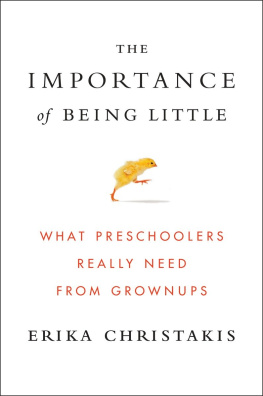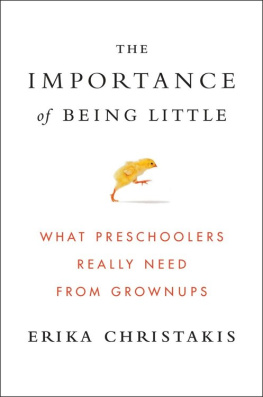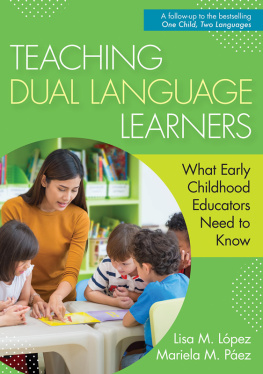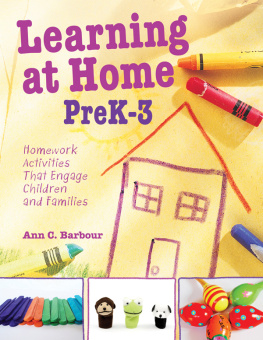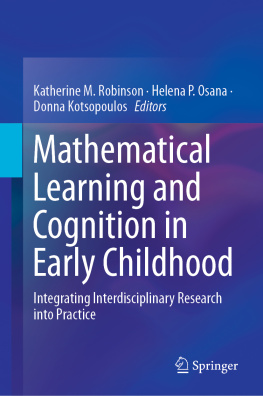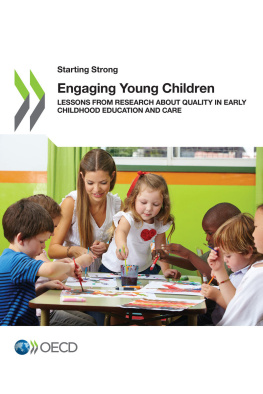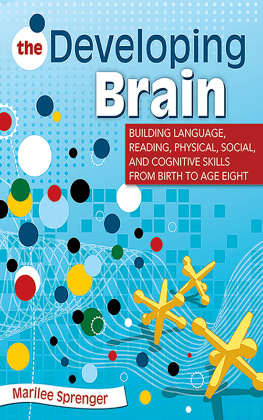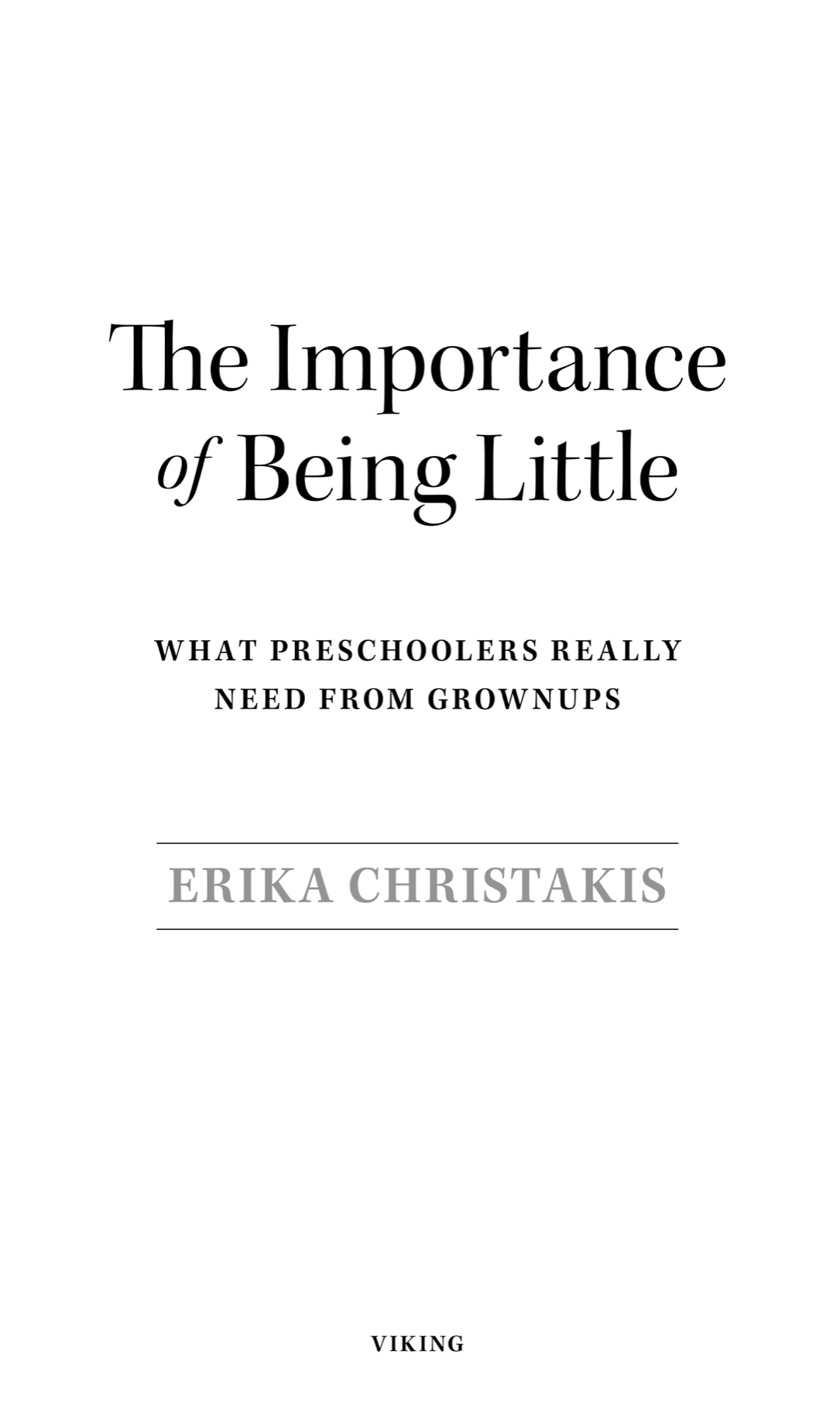Penguin supports copyright. Copyright fuels creativity, encourages diverse voices, promotes free speech, and creates a vibrant culture. Thank you for buying an authorized edition of this book and for complying with copyright laws by not reproducing, scanning, or distributing any part of it in any form without permission. You are supporting writers and allowing Penguin to continue to publish books for every reader.
Preface
T he important thing about young children is that they are powerful. They are lovable, playful, changing, and vulnerable. But the most important thing about young children, I believe, is their power.
I see this strength in the lively little children mowing me down to push the elevator buttons at the museum, and in the nosy ones who fire their flummoxing questions at me, rat-a-tat like a snare drum. I see it in the poetic children who imagine possibilities inside a garbage Dumpster, and in the loose-limbed ones sprawled across the subway car like they own the joint, their flushed faces pressed into the vinyl on my side of the seat. I see power in difficult and miserable children, too: the four-year-olds throwing tantrums in the supermarket and the toddlers howling with stiffened extremities as the airplane begins its grief-making drop in altitude.
I love young childrens power, which is not to say that it doesnt burden or annoy me at times, because it does. But my faith in these strong small characters drives this book; and it drives my desire to improve the lives of young children and to alleviate the anxieties of those caring for themnot with magic or money, but with real insights about what we know goes on inside childrens heads.
The Importance of BeingLittle grew from my experiences as a preschool teacher and director, and from my current work in early childhood education at Yales Zigler Center in Child Development and Social Policy (a branch of the famous Yale Child Study Center founded by the father of the American child development movement, Arnold Gesell). Im enormously privileged to work in such a storied environment, where I teach college courses on child development and education policy. But my concerns with early learning have more humble roots.
I wanted to teach young children since I was a little girl myself, and passed long hours instructing my stuffed animals in what I thought were the essentials of a good kindergarten education. Mainly, I put them in straight lines and read to them in my hectoring teacher lady voice. But because I started college in the early 1980s, in an era when women were finally being allowed to leave the teaching profession to become doctors and Supreme Court justices and astronauts, few of my Harvard classmates wanted to become teachers, and even fewer had any desire to work with untamed tiny pupils who couldnt master a pencil grip. I remember being dissuaded from my career path by well-meaning female relatives who themselves had spent their careers as teachers. Somehow, I got the message that I was supposed to aim elsewhere, higher.
So I dutifully collected credentials and experiences in the public health field, working with homeless veterans suffering addictions and with subsistence farmers in Africa; counseling indigent adults with schizophrenia; working in philanthropy and as an editor and grant writer in academic health centers. My public health career kept circling around the problems of families, which in turn led me back to the everyday world of very young children, a world that seemed tremendously engaging and intellectually vigorous. It wasnt lost on me that the giants of educational theoryinnovators such as Jean Piaget and Maria Montessoridid their pioneering work with the smallest humans.
I became a mother myself and, starting in the mid-1990s, took occasional jobs, while raising my family, as a substitute teacher at the renowned University of Chicago Lab School, where I was mentored by a master teacher, Marie Randazzo, whom we will meet later in the book. I started teaching in earnest in 2001, and as I spent more time with my own children, while teaching preschool in the mornings and working on my masters degree and certification in the evenings after my children were in bed, I became even more confused by the mismatch between, on the one hand, the abundant evidence Id amassed that young children were intelligent, capable people, and on the other hand, the sense I got from the larger world that preschool education was not valued for itself, and that preschoolers themselves were something of an embarrassment. When I accompanied my husband to professional events, I would watch peoples eyes glaze over when they learned I was just a preschool teacher. Often the disdain was coupled with an encouraging nod to how amazing it was that I could spend all day doing Gods work. These contradictory and condescending reactions rarely connected with what I was experiencing as a teacher; like most peoples ambitions, mine felt neither benighted nor particularly distinguished.
But it was no cakewalk entering the early childhood field after years of delayed aspirations. I can only analogize to learning to drive as a mature adult, which I also found myself attempting relatively late in the game. In both cases, the extra years conveyed a certain prudence and good sense; but they also made the tasks harder because I found myself constantly questioning received wisdom. (And why, exactly, is that car not going to plow its four thousand pounds of metal into the highway divider? Id wonder to myself on my way to work.) There were a lot of things to put into context, for the simple reason that, with age, I had acquired so much context.
Similarly, I began to question a lot of the received wisdom I was hearing in the public sphere about young children: that they were failing in droves; that disadvantaged children couldnt catch up; that parents were a problem to be managed; that a preschool teachers job was primarily to transmit content and skills and to focus on something called readiness. These tenets didnt match my lived experience with young children and their families.
My unusual path to early education led to one of the key insights I want to share in this book, namely that schooling and learning are often two different things. Young children arent blank slates delivered to the preschool classroom by storks, but, rather, they are complex persons who arrive already connected to families, communities, and culturesenvironments where they have done an awful lot of learning before they set foot through the door.
That young children learn primarily from their relationships is both an unfamiliar and self-evident reality, but it is a reality that is too often lost in our current debates about what is best for preschoolers. Instead of focusing on the social dimension of learning, weve grown overfond of skills and metrics that look nice on paper but dont really tell us much about what individual human beings do. Even the welcome rediscovery of social skills as a legitimate early childhood enterprise tends to presume that the social life of a child is a deliverable, similar to a curriculum package, rather than a natural incubator for learning itself. Our focus on the location and delivery system of learning, rather than the learning process itself, causes a huge amount of unhappiness for parents and teachers, not to mention for the children themselves, and the stress is palpable everywhere: pick the wrong preschool or ease up on the phonics drills at home and your child might not go to college. She might not be employable. Who knows? She might not even be allowed to start first grade! The stress is compounded by the lack of control people feel over the care of young children, which usually takes the form of not enough time, money, and choice. Poor-quality child care remains a bedeviling reality for an unacceptably large percentage of American families, and many of the children who would benefit most from preschool are not enrolled at all.

